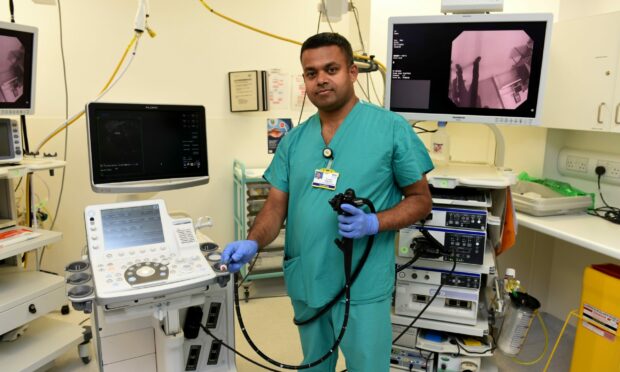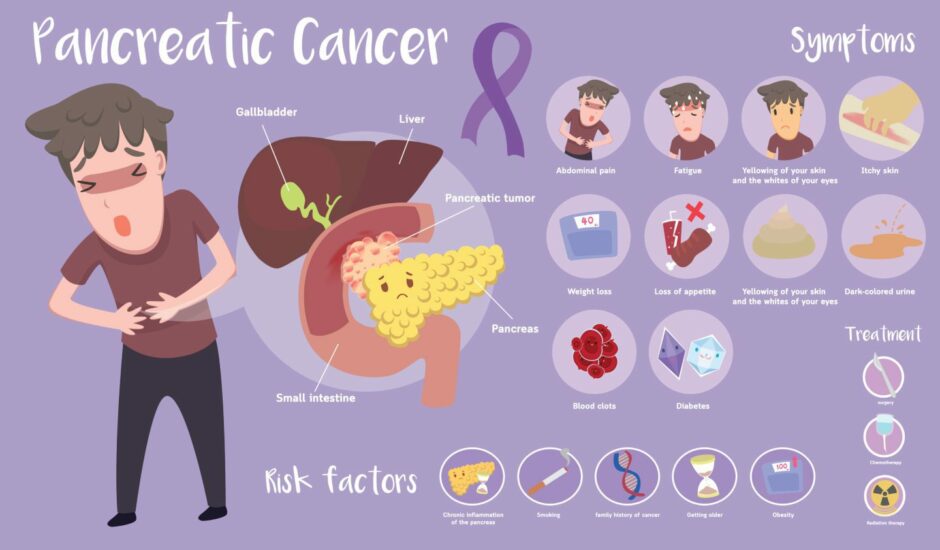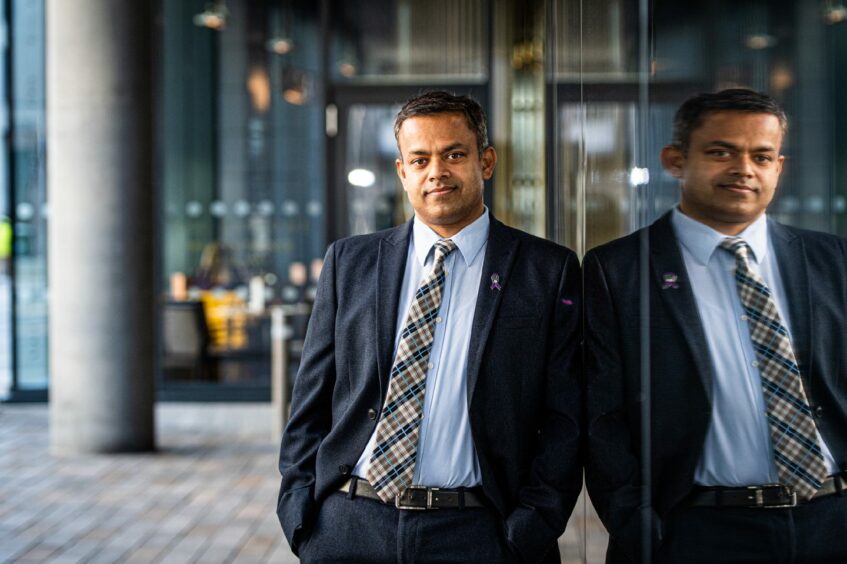An expert medic is warning people to look out for the symptoms of pancreatic cancer because it often shows no signs until it’s at an advanced stage.
Consultant gastroenterologist Umesh Basavaraju says younger people are now coming into hospital and being diagnosed.
“The risks increase in age but we have seen younger patients in their early 40s now who have pancreatic cancer,” he says.
Dr Basavaraju said this type of cancer used to be more prevalent in people over the age of 60.
It’s the fifth-biggest cancer killer in the UK with around 9,000 deaths every year.
What are the symptoms to look out for?
The Aberdeen Royal Infirmary consultant highlights how important it is to look out for potential signs of the disease.
The earlier the cancer is spotted, the higher the chance of survival.
If you notice you have jaundice, unexplained weight loss or severe abdominal pain you should book an appointment with your GP.
“Patients have to be vigilant about the symptoms,” Dr Basavaraju explains. “But it’s very difficult to pick up pancreatic cancer at an early stage.”
Each year around 10,000 people are diagnosed with pancreatic cancer.
Cancer Research UK stats show that rising numbers of women in all ages groups have been diagnosed since the early 1990s.
The biggest rise (34%) was noted in females between the ages of 25 and 49.
Rising numbers of men over the age of 60 have also been diagnosed.
Younger people diagnosed: What treatments are available?
It has the lowest five-year survival rate of any of the 22 common cancers.
But there are treatments, with more options available for patients diagnosed in the early stages.
Dr Basavaraju explains that if caught at an early stage patients are more likely to get the chance of an operation.
Is there anything you can do to reduce your risk of developing the cancer?
There are steps you can take to reduce your risk – make sure you live a healthy lifestyle.
Smoking and alcohol are both known to increase the likelihood of developing pancreatic cancer.
Dr Basavaraju says it’s not yet known why rising numbers of younger people are diagnosed.
But, speaking to us during Pancreatic Cancer Awareness Month, he advises making healthy lifestyle changes if you think you could be at risk.
“Avoid smoking definitely, and limit your consumption of alcohol to the government recommended levels and maintain a healthy body weight,” he says.


